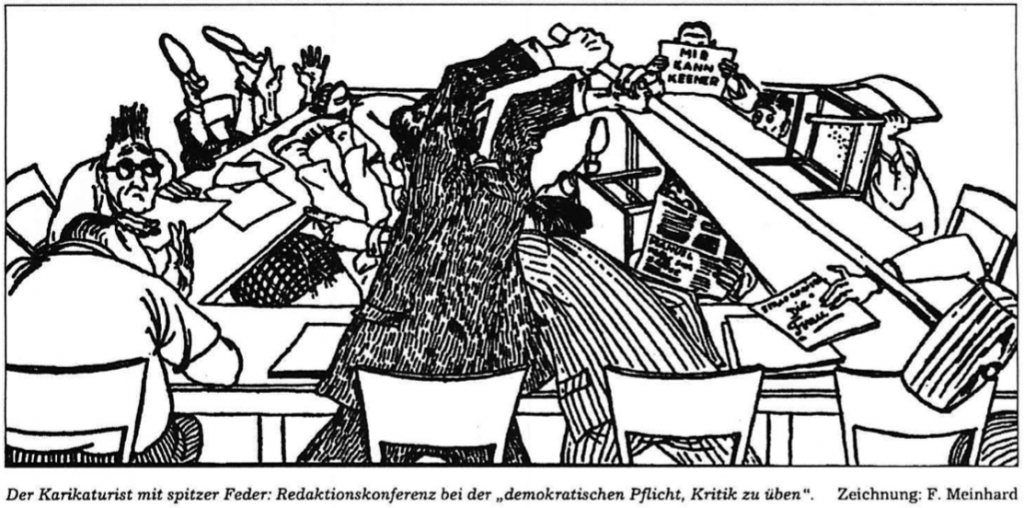for the employees of the Stuttgarter Zeitung (and other newspaper writers)
1. In headlines and short messages that tell a closed fact, no imperfect (the tenses of the narrative!) Will be used, So: Mussgay has hanged, not: Mussgay hung. Clemenceau has been elected president, not: was elected president.
2. The temporal form of the past, that is to say, of an event which has lain further behind another past event, is the pluperfect. In a narrative report on a day of reception with the Pope, it must not mean that the Pope received some clergy, who were expelled from Albania, but had been expelled.
3. According to the words of saying, believing, thinking, and thinking, the subjunctive of the present is generally set, not the past. He said he was ill, not that he was ill. Only if the subjunctive of the present tense is the same as the indicative one does the imperfectum in its place in order to avoid a misunderstanding. (He said that my name was Hans.)
4. After all, a connotation that should be used only in terms of time is not causative (instead of there or because), a bad habit that is currently arising: "After the washing machine is so cheap, we can also buy a vacuum cleaner."
5. The property word in predicative (meaningful) position is not bowed. It does not mean that the sight is sad, but the sight is sad.
6. The referring back word stands in main clauses immediately after the verb, in subordinate clauses immediately after the first clause. Soon, people began to accumulate on the street. (Not: Soon people began to accumulate on the street.) The mental state in which the German bourgeoisie at the time of the war was. (Not: in which the German bourgeoisie was at the time of the end of the war.)
7. Be careful with "to". A sentence with um zu is only possible if the main sentence and subordinate clause have the same subject. He went to the city to shop. But not: he called the doctor to give him an injection. Please do not forget the "to"! One says: he does not need to know that, not: he does not need to know that.
8. Beware of exaggerations and superlatives, as they have flourished in the past (this also includes words like gigantic, outrageous, unbelievable, fantastic). It is very abhorrent to use “with” in the superlative. “That is a good book” is apparently not enough, nor does one dare to say the best or one of the best books; you take back the superlative and write: “one of the best books”. With that one thinks to have circumnavigated two cliffs and has happily ended up with an expression that is as ugly as it is meaningless.
9. Do not confuse apparently and apparently! This couple is "apparently happy" means something very different from "apparently happy".
10. Use simple time words, and save the nouns, especially the -ung! Say prove instead of proving, renounce rather than renounce, investigate rather than investigate, subjugate and so on. "It still applies to the order that the certificate of appointment of the teachers is to include the provision that their marriage results in the termination of their employment." This sentence would be in good German about: "Teachers who are hired are to point out that they must leave office if they marry. "
11. Do not say much but much, not fresh fish and fresh milk, but fresh fish and fresh milk. And not now, but from now on, so from the 21. September, not from 21. September.
12. Avoid, if you can, buzzwords from the Hitler era (or even something older) such as: guarantor, aggression, sector, extent, in the course, use, raise, point, sink, align, shape, look after, capture, portable, completely, once, fully, on the part, one hundred percent, no doubt and a few dozen other such flowers of a bad time, which have not made our language richer and more beautiful.
Please do not consider this list of sins as complete. Let yourself be inspired to explore their conscience; maybe you will come up with others.
1950
